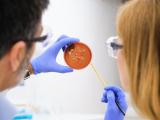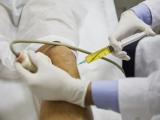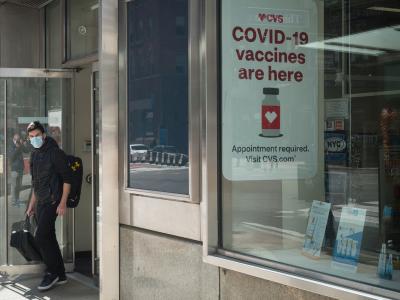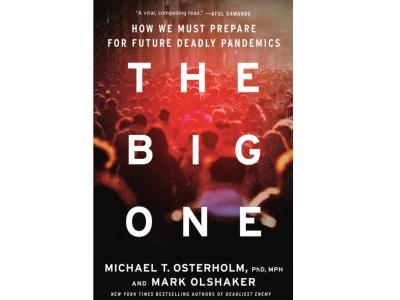May 4, 2011
US government orders more anthrax vaccine
The US government has ordered 3.42 million more doses of anthrax vaccine from Emergent BioSolutions, a pharmaceutical company based in Rockville, Md., according to a May 2 press release from the company. The contract modification, which includes delivery and shipping, is worth $101 million. Emergent said it expects to start delivering the additional vaccine doses as soon as it completes final delivery of the original order for 14.5 million doses and intends to finish delivering the additional doses by the end of 2011. The company produces BioThrax (anthrax vaccine adsorbed), the only vaccine licensed by the Food and Drug Administration (FDA) to protect against anthrax. The product is indicated for adults who are at high risk of anthrax exposure. So far the company has delivered 42 million doses to the US government. Since 1998, 10 million doses of BioThrax have been administered to more than 2.5 million military personnel, according the company. Fuad El-Hibri, Emergent chairman and CEO, said in the statement that federal officials have indicated a need for 75 million total doses in the years ahead.
May 2 Emergent BioSolutions press release
Study: 15% of US nursing homes cited for infection control errors annually
An average of 15% of US nursing homes received an infection control "deficiency citation" from federal regulators each year from 2000 through 2007, and the problems were associated with low staffing levels, according to a report in the American Journal of Infection Control (AJIC). Researchers from the University of Pittsburgh Graduate School of Public Health examined deficiency citation data collected for Medicare and Medicaid certification of about 16,000 nursing homes, representing 96% of the US total. The proportion of nursing homes cited rose over the 8 years, from 12.9% in 2000 to 17.3% in 2007, with 1,828 institutions cited in 2000. Close to half (48.6%) of the citations were at the "D" level, signaling a "potential for more than minimal harm . . . and isolated cases," the report says. Compared with non-cited nursing homes, those that were cited were more likely to have lower nursing staff levels, to be for-profit institutions, to have a higher proportion of residents on Medicaid, and to have more citations for quality-of-care deficiencies. The report says that most nursing homes do not have infection preventionists. However, the authors note that some of the deficiency citations pertained to paperwork problems and did not necessarily reflect actual infection control lapses.
May AJIC abstract
New FDA draft guide targets reusable medical device safety
The FDA on May 2 released draft guidance on reprocessing reusable medical devices such as endoscopes and surgical forceps to reduce healthcare-associated infections. To get feedback on the document, which covers device design and cleaning instructions, the agency is hosting a stakeholder's workshop Jun 8 and 9 at its campus in Silver Springs, Md., the FDA said in an Apr 29 press release. William Maisel, MD, MPH, deputy director for science at the FDA's Center for Devices and Radiological Health, said in the statement that reprocessed devices play a key role in healthcare and that the FDA, industry, and healthcare facilities share responsibility of making sure reprocessing procedures work and are properly implemented. In a review of adverse event reports for endoscopes that were filed from Jan 1, 2007, to May 11, 2010, the FDA found 80 reports of inadequate reprocessing, including 28 reports of infections that may have occurred from inadequate procedures. Though the FDA said it believes the risk of infection from reprocessed devices is low, it said the draft guidance will provide greater clarity on how to scientifically validate reprocessing instructions and will update cleaning criteria.
May 2 FDA draft guidance
Apr 29 FDA press release




















